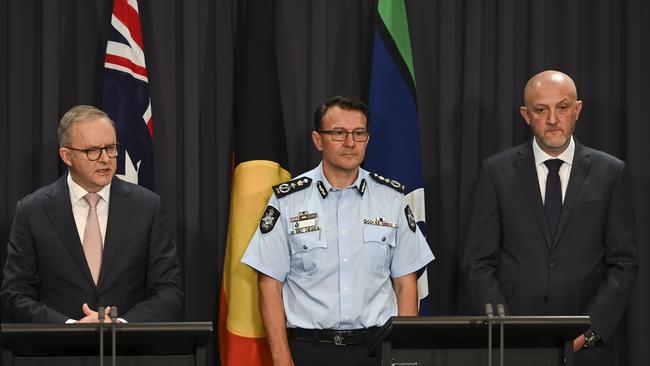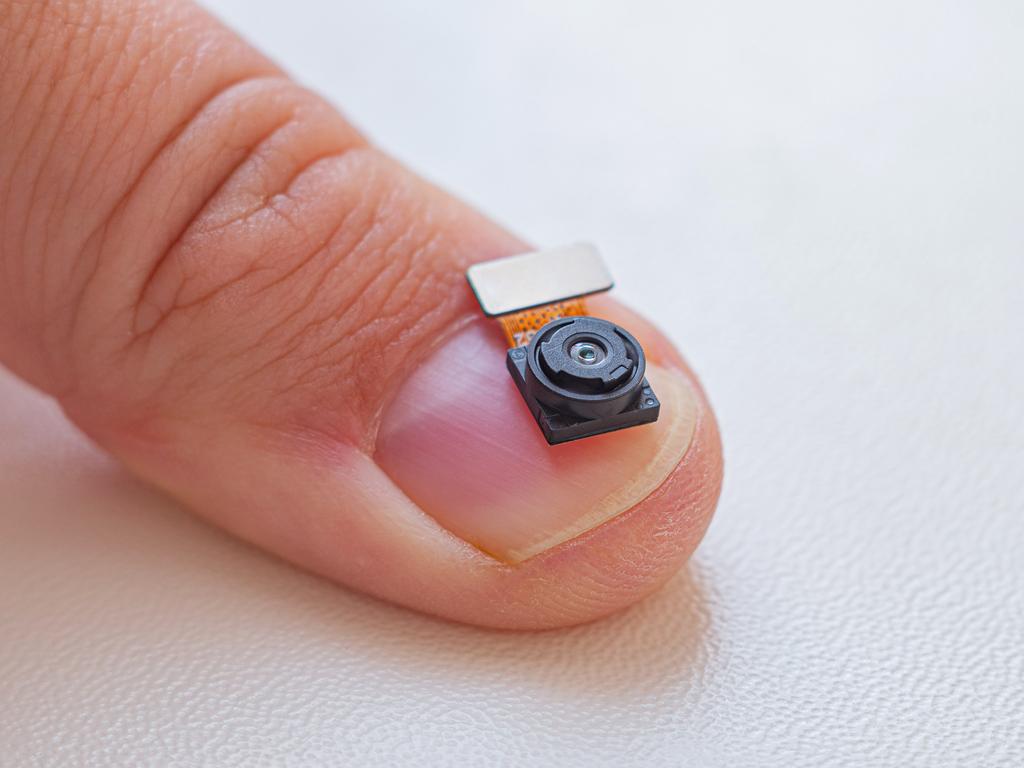Anti-radicalisation drive: ASIO and AFP recruit teachers and parents
ASIO and AFP chiefs have asked teachers and parents to help identify online-fuelled extremism amid a ‘shocking’ surge in youth radicalisation and counter-terror investigations.

A “shocking” surge in youth radicalisation is fuelling a concerning spike in counter-terror investigations, with ASIO and Australian Federal Police chiefs asking teachers, parents and health professionals to help identify early signs of online-fuelled extremism.
ASIO director-general Mike Burgess and AFP Commissioner Reece Kershaw on Friday will reveal 20 per cent of the spy agency’s priority counter-terror cases involve youth, with children as young as 12 being investigated by Joint Counter Terrorism Teams.
The intervention by Australia’s top security chiefs comes as they ramp-up collaboration with Five Eyes partners to fight a global explosion in extremism fanned predominantly via digital platforms.
Mr Burgess, who in August lifted Australia’s terror threat level from possible to probable, said “as a parent, the numbers are shocking; as an intelligence officer, the numbers are sobering”.
“Around 20 per cent of ASIO’s priority counter-terrorism cases involve young people. In every one of the terrorist attacks, disruptions and suspected terrorist incidents in Australia this year, the alleged perpetrator was a young person,” Mr Burgess said.
“Parents, teachers, health professionals and frontline workers need to understand and identify the early signs of radicalisation. Once ASIO and the AFP get involved, it is usually too late – the young person is already in a dark and dangerous place.”
Mr Kershaw, who said he was concerned by the increasing number of youth being investigated by the JCTT, also backed a “whole-of-society response” to intervene early and neutralise extremist threats.
“A priority for the AFP is to limit the accessibility of violent extremist material and promote education and awareness for those in protective roles, including parents, educators and healthcare providers, to maximise prevention and early intervention options,’’ Mr Kershaw said.
“Within the JCTT youth caseload, we are witnessing the same extremist propaganda videos across multiple unrelated investigations, and this suggests that links exist in the online environment across platforms such as Discord, Telegram and TikTok.”
Mr Kershaw said since 2020, the AFP and JCTT partners had investigated and conducted operational activity against 35 individuals aged 17 years or younger. The youngest of the cohort, of which 57 per cent have been charged with commonwealth or state-based offences, was 12 years old.
The response from Australian security agencies and their Five Eyes partners comes amid community concerns about social cohesion following a rise in anti-Semitism and nationalist violent extremism.
In their first public research collaboration on the issue, Five Eyes security and law enforcement agencies have released an eight-page paper analysing youth radicalisation trends and case studies in Australia, the US, Canada, Britain and New Zealand.
The analysis, titled “Young people and violent extremism: a call for collective action”, features two Australian case studies involving teenagers aged 16 and 14.
The first case focused on a 16-year-old who was investigated by the JCTT following reports they were “mobilising to commit an act of ideologically motivated violent extremism”.
The teenager, who was sharing extremist material online and using platforms including Telegram, was advocating for “attacks on persons of non-Caucasian appearance, and urged others to prepare for an upcoming race war to defend the white race”.
The teenager, sentenced to an 18-month prison term, discussed carrying out a mass killing offshore, requested assistance in bomb-making and suggested targeting “high-profile enemies”.
“The minor was observed to have very few real-world relationships which consisted primarily of work colleagues and family members. He did not participate in any extra-curricular activities and appeared to spend limited time socialising offline.”
The 14-year-old, sentenced to a two-year good behaviour bond, adhered to a “nationalist and racist violent extremist ideology and expressed strong admiration for a terrorist and terrorist attacks”.
The JCTT received information through CrimeStoppers that the teen, known for undertaking racist actions towards Asian and Indigenous Australians, was sharing violent extremist material on Snapchat, planned to conduct a shooting at their high school and had access to firearms and explosives “sufficient to kill a large number of students”.
The Five Eyes paper, which will inform the government’s upcoming Counter-terrorism and Violent Extremism strategy, said: “Radicalised minors can pose the same credible terrorist threat as adults, and law enforcement and security agencies cannot address this issue alone.”






To join the conversation, please log in. Don't have an account? Register
Join the conversation, you are commenting as Logout